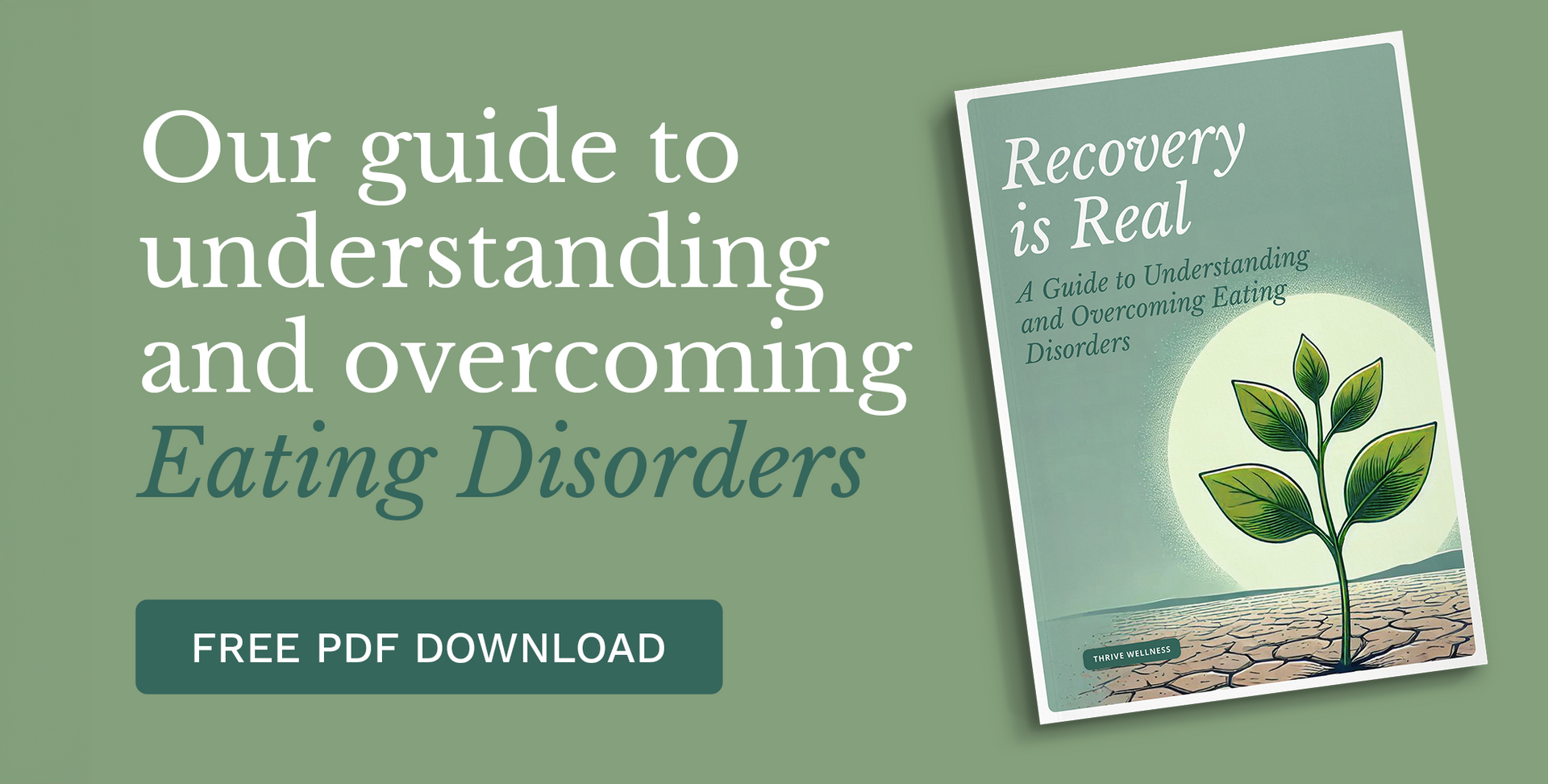How Calorie-Restrictive Eating Disorders Can Lead to an Underactive Thyroid

By Thrive Reno’s Director of Primary Care Services Becky Barnett, PA-C
The Vital Role of the Thyroid in Your Health
The butterfly-shaped thyroid gland, located at the base of the throat, plays a crucial role in the body's endocrine system. Though small, this gland is responsible for regulating vital body functions by releasing hormones that impact nearly every cell, organ, and function within the body. The thyroid’s hormones are especially critical in managing metabolism, growth, and development, making it a powerhouse despite its size.
The Impact of Malnutrition on Thyroid Function
When a person experiences a calorie-restrictive eating disorder, such as anorexia nervosa, the body's response is to slow down thyroid function. This is a survival mechanism; the thyroid reduces the production and secretion of hormones to conserve energy in response to the lack of nourishment. However, this adaptive response can lead to significant health issues. Severe starvation can cause the thyroid gland to atrophy, or shrink, further weakening its function.
Recognizing the Symptoms of an Underactive Thyroid
Hypothyroidism, or low levels of thyroid hormones, can have wide-reaching effects on the body, particularly on metabolic processes. Below are some of the critical symptoms to be aware of:
Slowed Heart Rate: The lack of thyroid hormones can weaken the heart's ability to pump effectively, leading to a slower heart rate.
Elevated Cholesterol Levels: With a sluggish thyroid, the liver processes blood more slowly, potentially causing cholesterol to accumulate in the arteries.
Decreased Metabolic Rate: Low thyroid hormone levels can reduce the body's ability to convert food and drink into energy.
Lower Body Temperature: A slowed metabolism may result in a drop in core body temperature, often causing an individual to feel constantly cold.
Digestive Issues: Reduced metabolism can lead to constipation and other digestive problems.
Muscle Pain and Weakness: Insufficient thyroid hormones can cause muscles to feel weak, achy, and prone to cramping.
Cognitive Impairments: Hypothyroidism can manifest as "brain fog," characterized by forgetfulness, confusion, delayed reaction times, and difficulty concentrating.
Mood and Mental Health Symptoms: The overlap between hypothyroidism and depression symptoms is significant, with fatigue, social withdrawal, apathy, anxiety, and irritability being common in both conditions.
Given the overlap between the symptoms of hypothyroidism and eating disorders, it’s essential to have blood tests done to accurately diagnose low thyroid hormone levels.
Restoring Thyroid Health Through Recovery
The good news is that individuals in recovery from eating disorders can often restore healthy thyroid function. By gradually increasing caloric intake and working towards restoring a healthy body weight, the thyroid typically begins to normalize, as do many other bodily functions.
Thrive’s Comprehensive Eating Disorder Treatment
At Thrive, we understand the complex relationship between physical health and mental well-being. Our integrated approach to eating disorder treatment addresses the full spectrum of health—physical, mental, and emotional. Our expert-led team is here to help you on your recovery journey. Reach out to us to learn more about how we can support you in healing and reclaiming your life.
About the Author
Becky Barnett, PA-C — Thrive Reno Director of Primary Care Services
Becky Barnett, PA-C, has worked as a Physician Assistant for over 25 years with a primary focus on women’s health. She earned a bachelor’s degree from U.C. Riverside in 1991, and graduated from the College of Osteopathic Medicine of the Pacific (now Western University of Health Sciences) as a Physician Assistant in 1995. She has worked in various venues including community health centers, residential mental health facilities, large HMO settings and private practices as she moved throughout California and then into Nevada in 2001. She is proud to represent the medical team of Thrive Wellness of Reno, and is thrilled to be a part of such an authentic and passionate group.









